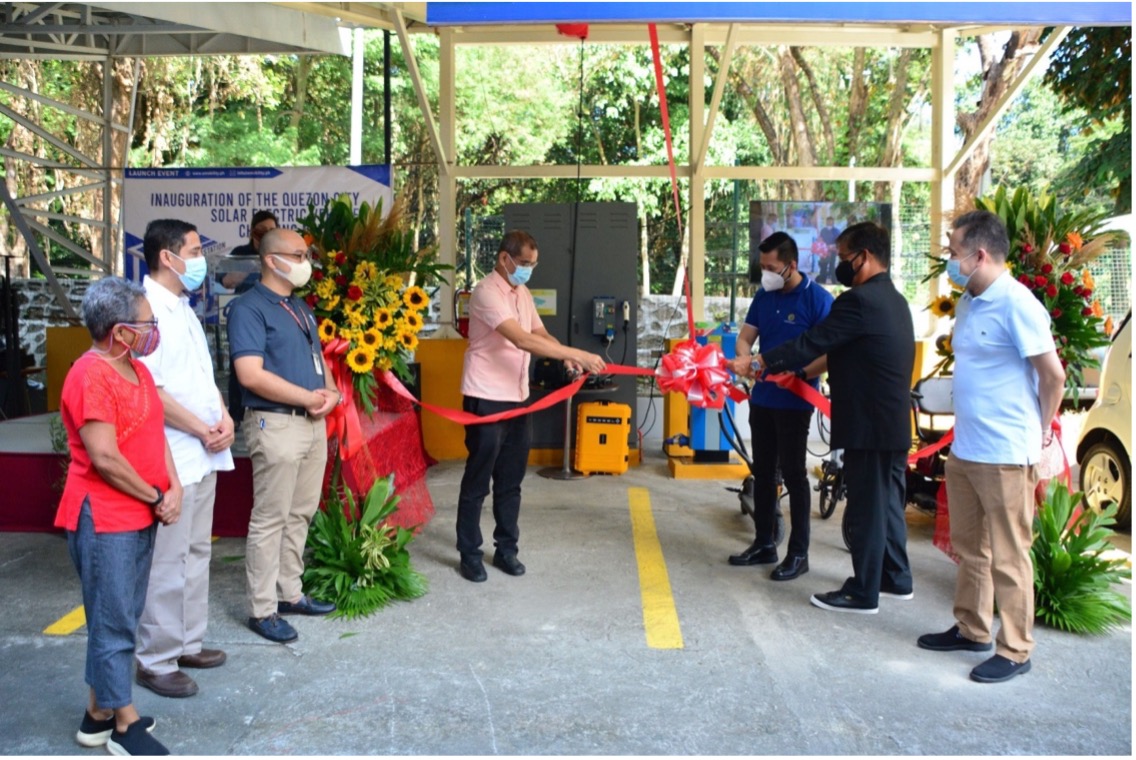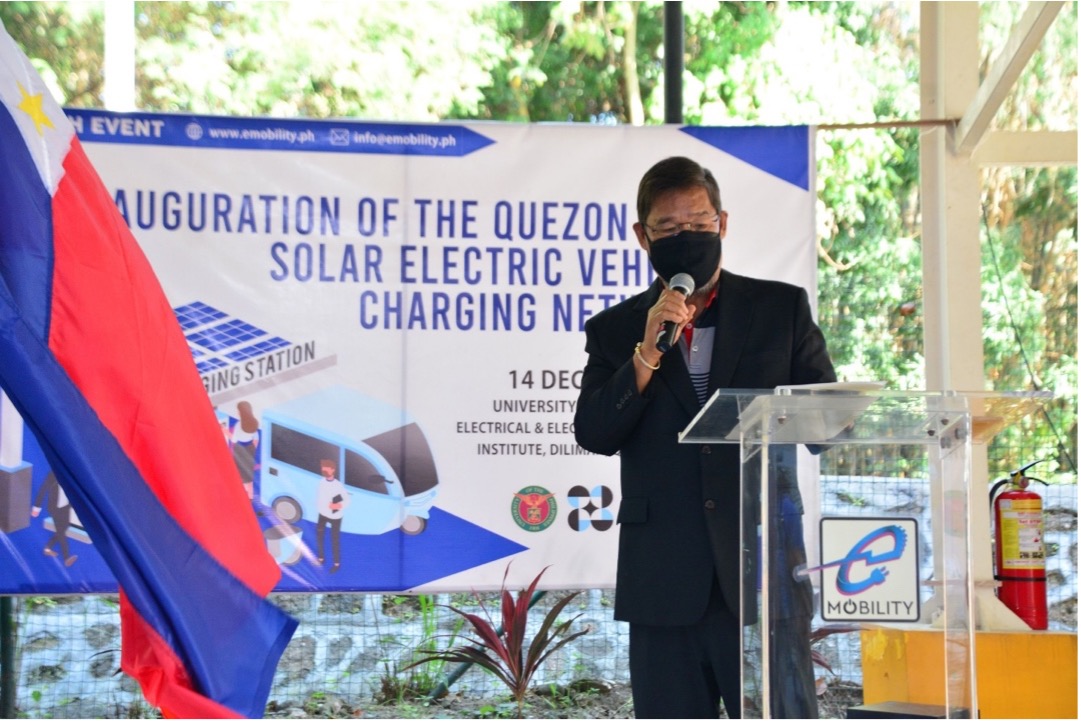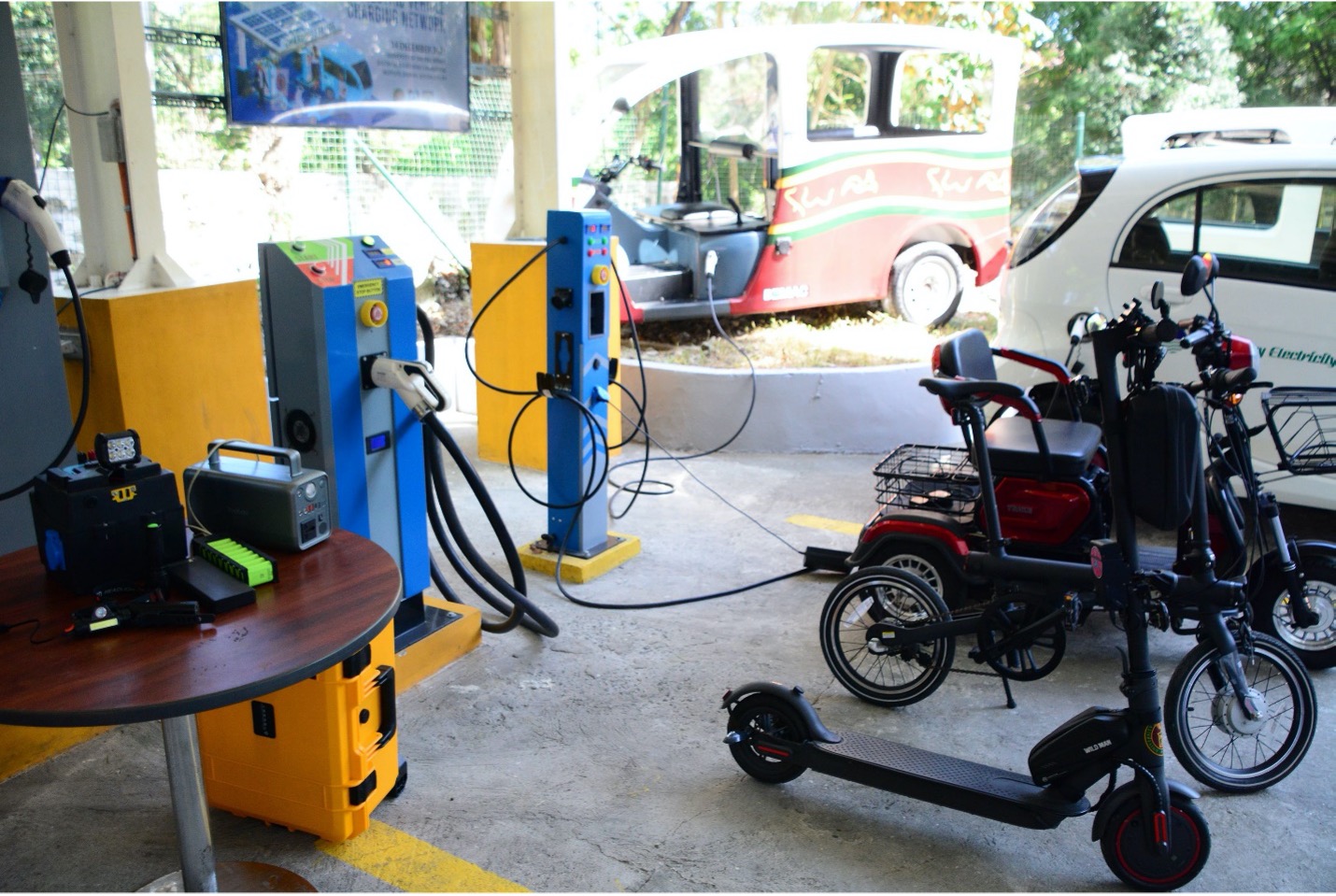Electric tricycle and electric vehicle (EV) drivers and owners in Quezon City (QC) now have three additional places to charge their vehicles on the road, with the inauguration of a network of rapid-charging stations for EVs in three locations in QC.
The QC Solar Electric Vehicle Charging Network is composed of three rapid electric vehicle charging – Charging in Minutes (CharM) fast-charging stations located at key points in QC where electric vehicles (EVs) such as electric scooters and e-trikes can charge for free.
Launched on Dec. 14, the three locations are the Electrical and Electronics Engineering charging station beside the building proper along P. Velasquez Street, the QC Department of Public Order and Safety Building at the QC City Hall Compound along Elliptical Road, and the Environmental Building at Barangay Payatas.

Each CharM station can charge a single e-trike in less than an hour as opposed to the eight to 10 hours it would normally take when plugged into a regular 220-volt outlet. They are equipped with various adapters that can be used on most e-scooters, e-bikes, and even small electric cars.
The CharM stations are also equipped with solar panels to supplement, and in emergency situations, replace the electrical lines supplying it.
The network is one of the end products of “Determination of Optimal Placement of Electric Vehicle Charging Station in a Local Public Transportation System” by the Electric Mobility Group of the National Center for Transportation Studies.
The group coordinated with the QC Department of Public Order and Safety (DPOS) who assisted them in surveying three of the biggest tricycle operators and drivers associations (TODAs) in the city, namely, Litex-Commonwealth TODA, Litex-Payatas TODA, Payatas TODA, and Parkwoods TODA for the project.
The DPOS members were also trained by the project staff on the effective management of the charging stations as well as the vehicles prior to the launch.

DPOS Department Head Elmo D. G. San Diego said the QC government is supportive of using e-trikes as it can carry more passengers per unit, which reduces the use of the roadways.
“Dalawang conventional na tricycle ang equivalent ng isang e-trike dahil six-seater yan e. Malaking bagay doon sa old capacity natin. Maa-accommodate niya kahit 50 percent. Malaking bagay sa city yan dahil iyong usage ng kalye natin mare-reduce,” he said.
Another advantage of e-trikes is improving air quality.
“Ang QC kasi may 25,000 franchised tricycles. Siguro nasa 30-40 percent niyan iyong two-stroke engine, iyon ang pinaka-pollutant sa lahat,” San Diego said.
For the next three years, the CharM stations will service the nearly 300 e-trikes plying the city as well as other motorists using compatible e-vehicles.The project is funded by the Department of Science and Technology Philippine Council for Industry, Energy and Emerging Technology Research and Development (DOST-PCIERRD).

